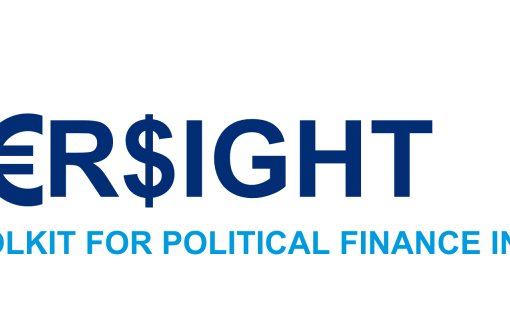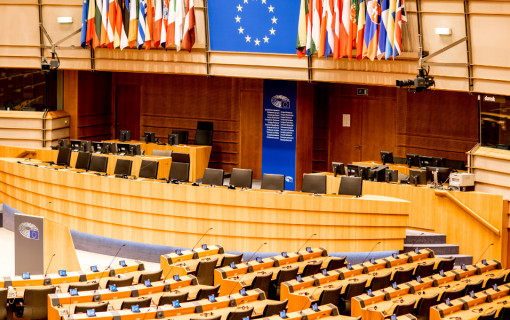
The Current and Future Role of Political Parties in European Countries
Political parties are often portrayed as one of the most important actors in our democratic processes, though decreasing trust and membership figures are often seen as major concerns. In numerous European countries, however, party membership figures have been falling since the 1980s, and anti-establishment movements have already played a significant role in many European countries for several years. What is the role of political parties in European elections and political processes today and in the future, and what impact does this have on our democracies? What can be done to strengthen the position of political parties, or are there other forms of entities that can take over the role of political parties?
During the 16th session of the Democratic Resilience in Europe discussion series organized by the International Foundation for Electoral Systems (IFES), an esteemed panel of experts discussed the current role of political parties in European countries and the role they will play in the fure. The Jan. 27 event gathered 92 participants from 33 countries. The discussion was facilitated by IFES Senior Political Finance Adviser and Regional Europe Office Director Magnus Öhman.
Anthoula Malkopoulou from the Department of Political Science in Lund University, Sweden stated that political parties are important in modern democracies as they coordinate collective action, connect society to governments and provide public justification for laws, decisions and policies. Malkopoulou argued that parties should be regulated to both protect and prevent them from overstepping their role. She noted a political discourse over banning political parties, with some arguing that anti-democratic, racist or sexist parties should be banned while others see such bans as undemocratic and claim that individual party actors should be punished for breaching laws.
Oskar Hultin Bäckersten, a doctoral candidate at the Department of Government at Uppsala University in Sweden, said that many party scholars argue that the parties are in crisis, with the main indication being the steady decline of political participation and party membership. Political interest is, however, increasing, and election turnaround is stable. Though there are several reasons for declining political participation, research suggests that parties withdrawing from civil society are partly to blame. A possible solution suggested by research to revert this trend would be making parties more deliberative, though it is unclear if this would stimulate mass participation.
Lolita Cigane, international consultant in elections and good governance and former MP in Latvia, argued that while parties are far from being perfect, they will most likely remain influential in the future. We should be focused on how to make “political parties more transparent, democratic, inclusive and fact and coherent analysis-oriented.” Cigane said that initiating and promoting citizens' initiatives; mobilization and participation via digital tools; and inclusion of minority groups and ad hoc alliances with civil society and issue groups are steps that political parties should take to become more attractive for citizens.
Birgitta Olsson, director of political parties at the National Democratic Institute and former MP and Minister from Sweden, said that political parties remain the backbone of democracy, despite their failings and weaknesses. Parties must start incubating and supporting grassroots initiatives to embed resilience and sustainable democratic culture. Olsson argued that donor institutions must continue to support political parties to achieve sustainable democratic progress while realizing that such progress is likely to be slow and incremental. She also stated that if the new social movement aspires to represent the citizens, they should seek elected office through free and fair elections.
Finally, IFES Europe and Eurasia advisor Anthony Bowyer argued that the pandemic has seen a decline in direct engagement between parties and citizens. However, the pandemic has also seen increased trust in governments and the scientific community and increased distrust in anti-establishment movements. Bowyer also stressed how the Russian government is intensifying its work to champion populist movements and leaders, and how political parties are both part of the problem and the solution to this malign influence. IFES works with its partners to increase citizen engagement in the political process and to level the playing field.
Published on February 9, 2022.










